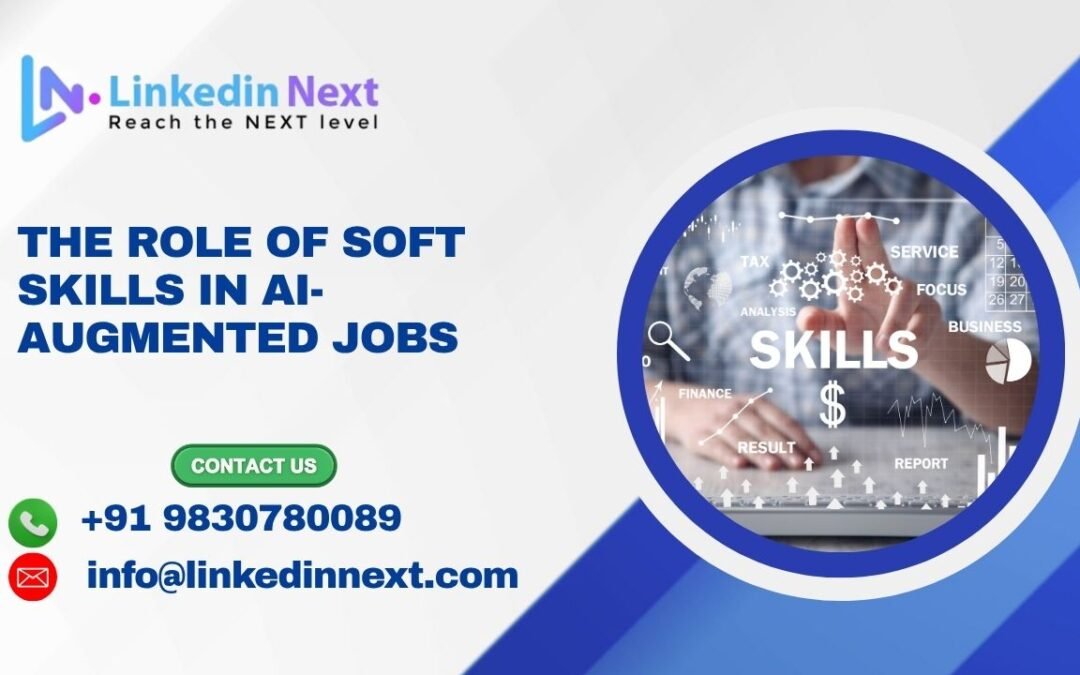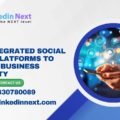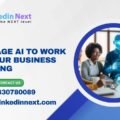The Role of Soft Skills in AI-Augmented Jobs
The Role of Soft Skills in AI-Augmented Jobs. As Artificial Intelligence (AI) continues to redefine industries, the demand for soft skills has never been more critical. While AI and automation excel in executing repetitive, analytical, and data-driven tasks, the human touch—empathy, creativity, communication, and leadership—remains irreplaceable. In the AI-augmented workplace, the synergy between machine efficiency and human emotional intelligence is what determines long-term success.
Understanding the New AI-Human Collaboration
In the modern workforce, AI is not replacing humans but enhancing human capabilities. From healthcare to finance, AI tools are automating administrative duties, freeing professionals to focus on strategic decision-making and interpersonal relationships. This shift places an amplified emphasis on soft skills—the attributes that machines cannot emulate effectively.
For instance, while AI can analyze consumer data, it cannot replicate the emotional intuition required to understand customer sentiment or build trust. Employees who can combine technical literacy with human sensitivity will lead in the evolving AI-driven environment.
Why Soft Skills Are the Competitive Advantage in the AI Era
1. Emotional Intelligence: The Core of Human Differentiation
Emotional intelligence (EQ)—the ability to perceive, evaluate, and respond to emotions—is an essential competency in AI-augmented settings. As automation handles data processing, professionals must focus on relationship-building, conflict resolution, and empathy-driven leadership.
Employees with high EQ can interpret emotional cues, provide personalized client experiences, and foster workplace harmony—skills that AI systems cannot automate. Companies that prioritize emotional intelligence often see higher engagement levels, reduced turnover, and stronger brand loyalty.
2. Communication Skills: The Bridge Between Humans and Machines
As organizations integrate AI tools like chatbots, virtual assistants, and predictive analytics, the ability to communicate clearly and strategically becomes more crucial. Professionals must translate complex data insights into actionable strategies, ensuring that AI-generated intelligence aligns with business objectives.
Moreover, cross-functional collaboration—between engineers, marketers, and managers—demands clarity, diplomacy, and active listening. Effective communicators can interpret AI outcomes, discuss ethical implications, and build trust across teams, ultimately driving innovation.
3. Adaptability and Lifelong Learning
The rapid evolution of AI technologies requires an agile and learning-oriented mindset. The half-life of technical skills is shrinking, but adaptability, curiosity, and problem-solving endure. Soft skills empower individuals to embrace change, reskill, and integrate AI tools seamlessly into their workflows.
AI-augmented professionals are not just those who know how to use technology but those who can redefine processes using it. Organizations now seek employees who demonstrate resilience, growth mindset, and the ability to thrive amid technological disruption.
4. Creativity and Critical Thinking in an Automated World
While AI excels at pattern recognition, it still lacks the imaginative reasoning that drives innovation. Creativity and critical thinking enable humans to conceptualize novel solutions, challenge assumptions, and generate ideas beyond algorithmic constraints.
In fields like design, marketing, education, and product development, the ability to think divergently—to connect unstructured data and craft unique solutions—is indispensable. AI can assist by generating options, but only human intuition can define purpose and direction.
5. Leadership and Collaboration in AI-Driven Teams
As AI takes over operational tasks, leadership is evolving from command-and-control to inspire-and-empower. Leaders must guide hybrid teams composed of humans and intelligent systems, making strategic decisions that balance ethical considerations with technological potential.
The leaders of tomorrow will need to be collaborative, empathetic, and inclusive, fostering environments where both people and machines contribute meaningfully. This requires cultural intelligence, mentorship, and the ability to inspire trust in an increasingly automated ecosystem.
Integrating Soft Skills into the Future Workforce
1. Education and Training Transformation
Academic and professional training institutions are integrating soft skills development into their curricula. Universities now combine STEM education with modules on communication, teamwork, and ethics to prepare graduates for AI-augmented roles.
Corporations are investing in reskilling programs to help employees strengthen interpersonal competencies. Courses on negotiation, storytelling, and leadership agility are becoming as valuable as data analytics certifications.
2. Organizational Culture and Human-Centric Design
Companies leading in AI adoption—such as Google, Microsoft, and IBM—emphasize human-centered design and ethical AI practices. This cultural shift ensures technology complements rather than replaces human judgment. A culture that values compassion, inclusivity, and psychological safety encourages innovation and collaboration across all levels.
Human-centric workplaces also enhance productivity by aligning technology with employee well-being, promoting a sense of purpose and belonging.
3. Ethical Decision-Making and Empathy in AI Deployment
AI introduces ethical dilemmas concerning data privacy, fairness, and accountability. Professionals with strong ethical reasoning and empathy are crucial to ensure AI systems are used responsibly. Soft skills drive discussions around bias mitigation, transparency, and human oversight, ensuring technology serves humanity—not the other way around.
By fostering ethical awareness and moral sensitivity, organizations can build public trust and avoid reputational risks associated with irresponsible AI use.
Balancing Automation with Human Touch
The future workforce is not a competition between humans and AI but a collaboration of strengths. AI delivers speed, precision, and scalability, while humans contribute intuition, compassion, and creativity. Businesses that can harmonize these forces will achieve sustainable competitive advantages.
In healthcare, AI diagnoses patterns, but doctors provide empathy and emotional support. In customer service, AI handles routine inquiries, but human agents solve complex emotional problems. In education, AI personalizes learning, while teachers motivate and inspire students.
This balance—between algorithmic intelligence and emotional intelligence—defines success in the next industrial revolution.
Preparing for AI-Augmented Career Growth
To thrive in this hybrid future, professionals must actively cultivate soft skills alongside technical proficiency. Here’s how individuals can prepare:
-
Develop empathy and active listening through real-world interactions.
-
Enhance communication by practicing storytelling and persuasive writing.
-
Engage in continuous learning, focusing on emotional intelligence and adaptability.
-
Participate in cross-disciplinary projects to strengthen collaboration skills.
-
Seek mentorship and feedback to improve leadership and interpersonal effectiveness.
By investing in these skills, professionals can remain indispensable in an AI-enhanced workforce, shaping technology to serve human progress.
Conclusion: Human Excellence in the Age of AI
As AI continues to advance, soft skills will define the true value of human contribution. The workforce of the future will not be dominated by machines, but by humans who understand how to work with machines intelligently. Empathy, creativity, adaptability, and ethical judgment will determine who leads and who follows in the new digital economy.
Organizations and individuals who embrace this philosophy will not only survive but thrive in the AI-augmented era, achieving innovation rooted in humanity.
Thank you for read our blog “The Role of Soft Skills in AI-Augmented Jobs”.
Also read our more BLOG here.
I hope this blog is helpful to you, if you have any question feel free contact us at
Call/WhatsApp: +91.9830780089 || Email: info@linkedinnext.com







Recent Comments